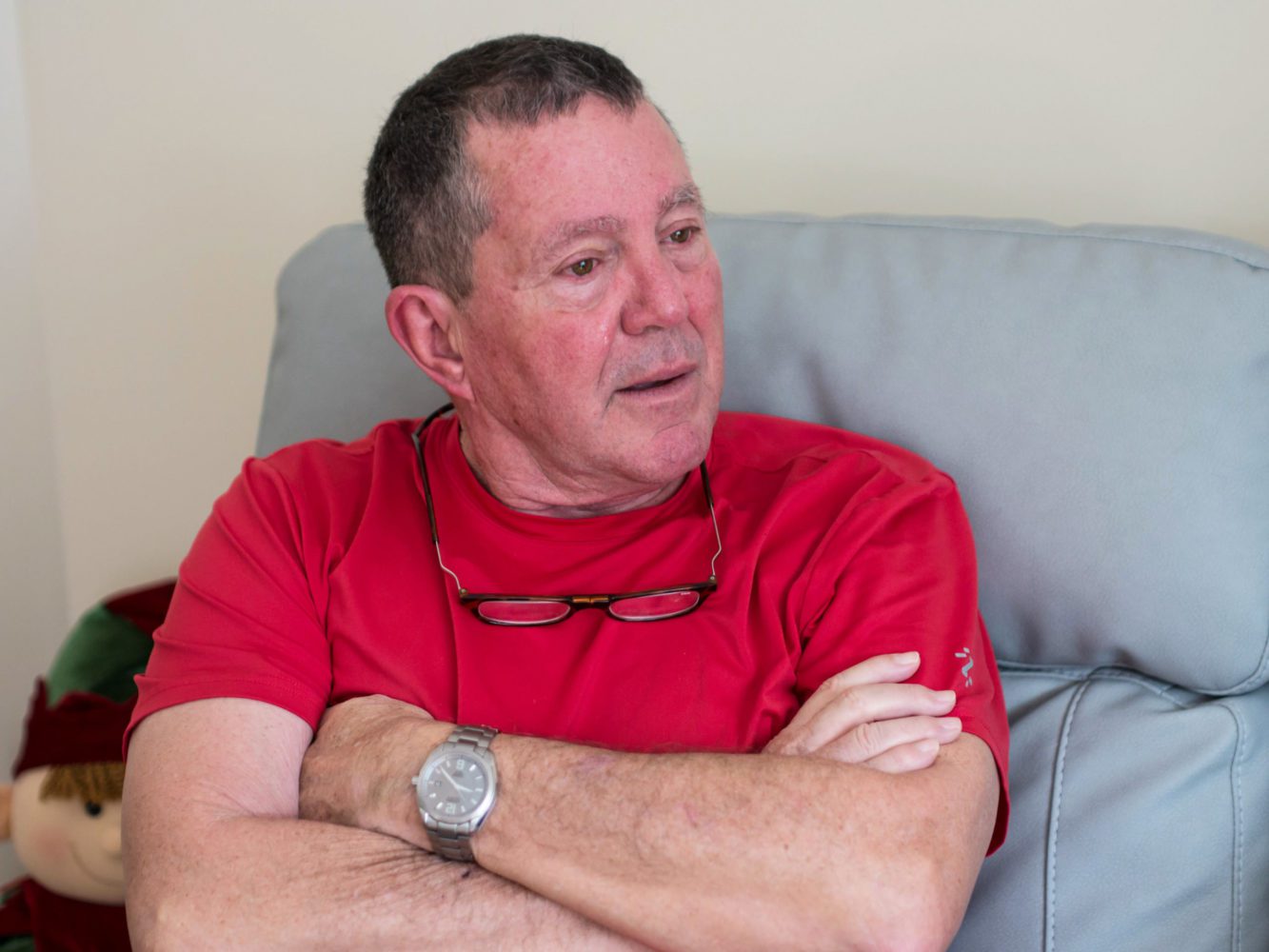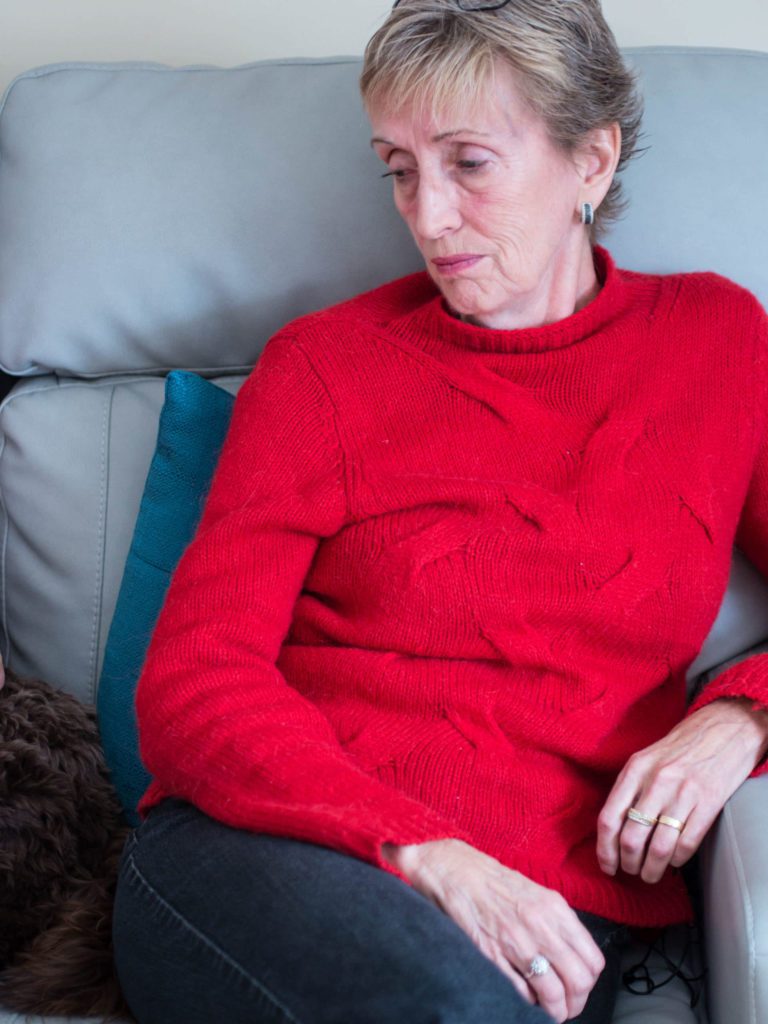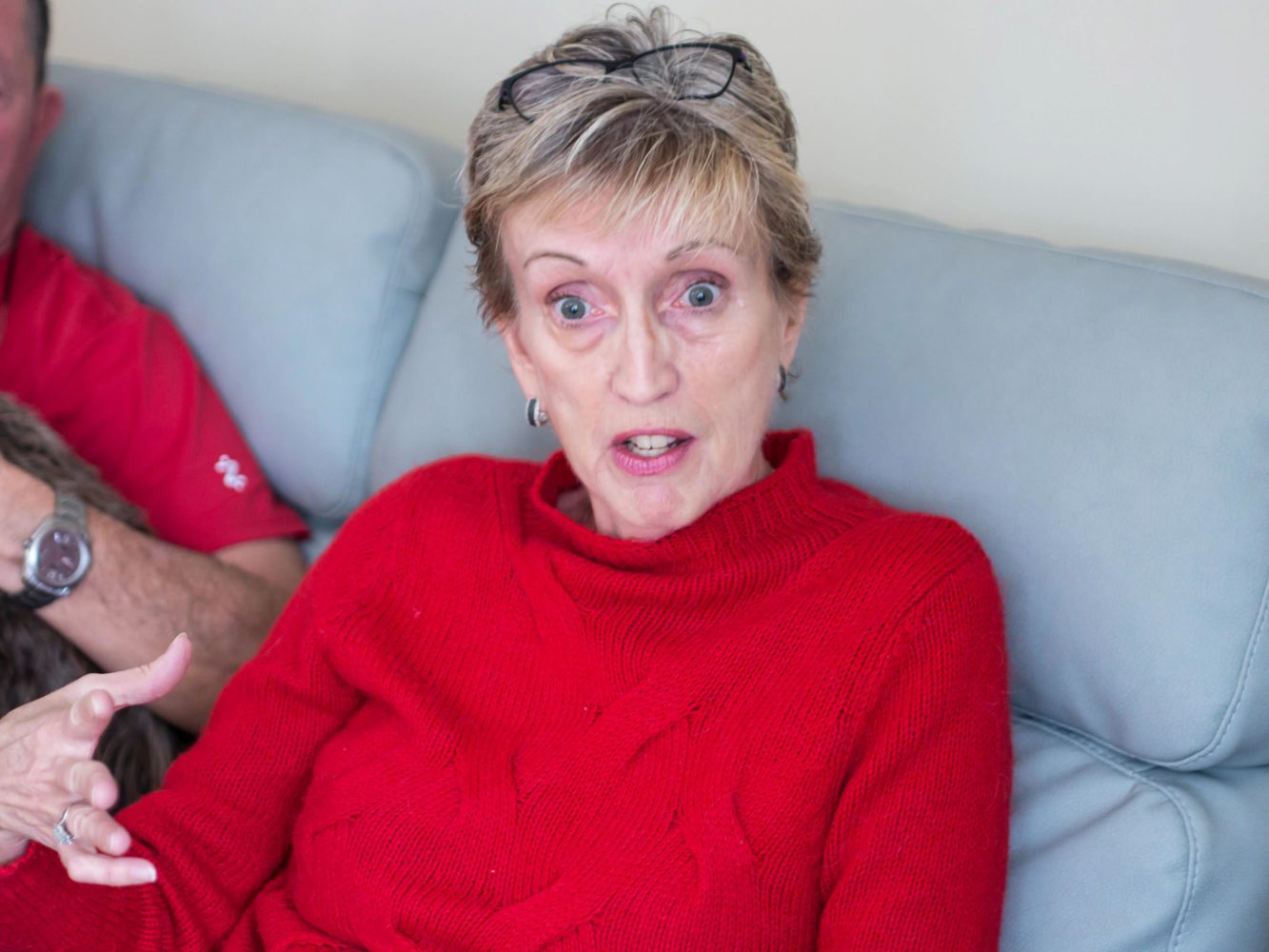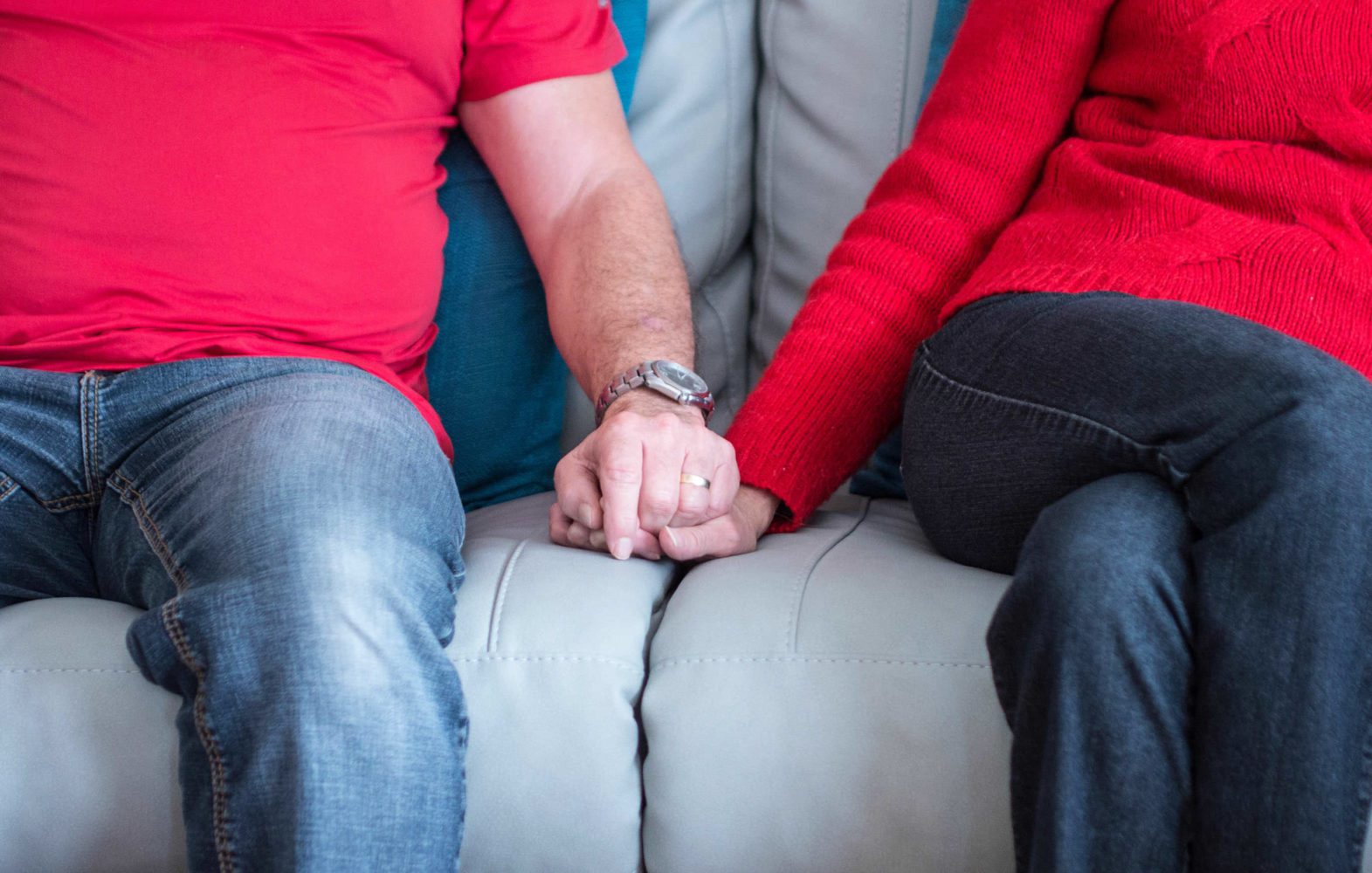I was at a get together with some girlfriends. We were playing accordion and singing songs, and all of a sudden I had an exploding headache. I remember the ambulance ride and arriving in the emergency department. After that I was basically out of it for five weeks. An aneurysm had burst and I bled into my brain.
“We spend our winters in Florida so we see lots people in different shapes and ages. On our walks along the waterfront we would talk about what I would want done if I were to have something terrible happen to my health. Basically, I wanted to end up with a good quality of life.”
“While I was in the ICU, Wayne had to carry the load. He knew my views. He had to make all of the decisions and ask all the tough questions. And they were not easy.”
Wayne: “We said we would not want Glenna to be resuscitated if her heart stopped – so we made her DNR. I worried about the kind of person Glenna would be if there had been brain damage. I told them, ‘Whatever you do, Glenna better be able to walk and talk. I will push her around in a wheelchair for a million years, but she won’t be happy. So you need to tell me the answers to these questions.’”
“They wanted to put a stent in her brain. I asked if that was a heroic action. They said, ‘Yes.’ It was very clear that Glenna didn’t want heroic actions. I worried that I would be breaking my commitment to her if we went ahead with the stent. They said that if they put the stent in, there was a 96% chance that she would be fine. It was a treatment to prevent another bleed into her brain, it wasn’t a life extending heroic measure. So, we went ahead.”
“The ICU and surgery team were very good at explaining things, keeping me in the loop and answering my questions. They were amazing, truly amazing.”

Wayne: “You have to know what your loved one’s wishes are. And you have to have the internal strength to go through with those wishes. Sometimes that’s hard. The whole family doesn’t necessarily agree.”
“Although Glenna had discussions with her dad before, it was really hard on him. We lost Glenna’s mom eight years ago so her dad couldn’t imagine losing Glenna too. My questions to the care team sounded negative to him. Like I didn’t care, like I didn’t want Glenna to live. That damaged the relationship between Glenna’s dad and us. Permanently.”

Glenna: “Overall, rehab was fabulous. My main goal was to learn to walk again because as soon as I could get out of bed and walk, I could go home. It only took me two weeks to do that.”
“It was tough to go from being healthy to where I was at the start of rehab. I had to undergo a lot of tests, both psychological and physical. I felt stupid after some tests. I know that wasn’t their intent but that’s how it made me feel. But, you’ve got to get through that process. You need to understand what your shortcomings are. However, you also need to focus a little bit on what you are still good at. That’s what I thought they didn’t do enough of. And I told them that.”
Did they listen?
“Yes, but I don’t know that they listened enough. I will give you an example. I saw a speech therapist. She would get me to do all kinds of tasks. I would get bored very quickly, but I always tried to be a very compliant patient. One morning I said, ‘How about we try something different today? I would like to work on practical things, like banking. Can we negotiate something?’ She told me I was the only patient who had ever told her what I wanted to do. I found that surprising. I thought there was clearly an opportunity for them to engage with patients more to find out what they needed or wanted.”
“The physiotherapists were so positive. I had the most issues with the psychology people. They focused so much on my left neglect [when you have trouble seeing what’s on your left side]. I mean, I needed to know that, but I would have liked to have them tell me more about what I was supposed to do to get better. Give me an example of how left neglect was going to interfere with my life. The example they gave was that I might load a dishwasher kind of strange. But I frankly didn’t give a damn if the dishwasher got loaded right.”
“They took my driver’s licence away. I understand why. It made perfect sense logically, but at the same time it was the biggest deal of the whole illness. I almost died and the thing that bothered me the most, that made me cry, was when they took my driver’s license away!”
“Wayne had to drive me everywhere and I am not used to that. The whole time that I didn’t have my license and Wayne was driving Miss Daisy, he wouldn’t let me be just a passenger. He really made me concentrate on stuff on the left. I think that helped me be able to drive again. Getting back to driving was the best day ever.”
“I called in February to get a follow up appointment with my rehabilitation specialist in May. I thought I was ahead of the game. But they said the only thing they had was April 30th. After that, the next appointment wasn’t until September. For critical and emergency issues I am very thankful for the Canadian system. But for less urgent problems, wait times are a problem. Wayne had a mini stroke in May and couldn’t get an MRI until September or October.”

Glenna: “There I was on the 17th of June basically in a coma, and by November 20th we are in a car driving to Florida. If that’s not a miracle I don’t know what is!”
Has this episode changed your relationship?
Wayne: “Only for the better. We’re there for each other. It has brought our immediate family incredibly close. Our three kids descended upon us to support us. They stay in touch more now. And we finally got our wish. Glenna is to blame for the arrival of our grandson. Our daughter’s partner said its Glenna’s fault because she showed them life can be so short.”



The comments section is closed.